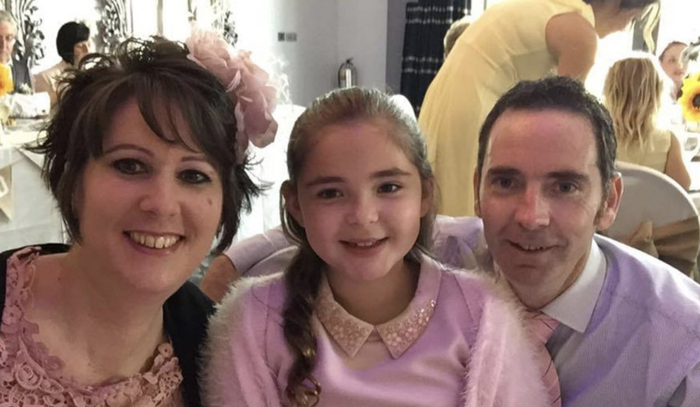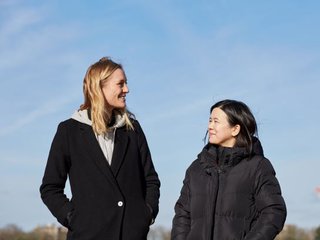Anna's story
How leukaemia changed my attitude to eating
Anna, 44, was diagnosed with acute myeloid leukaemia (AML) in 2015. Her treatment included high-dose chemotherapy over a six-month period in hospital. She’s now in remission.

Anna, 44, was diagnosed with acute myeloid leukaemia (AML) in 2015. Her treatment included high-dose chemotherapy over a six-month period in hospital. She’s now in remission.
My relationship with food since diagnosis has been a rollercoaster. During treatment I became extremely paranoid and frightened of it.
This was partly because the nausea and sickness were so bad that I had to have special anti-sickness drugs and a tube inserted into my stomach. And because my immune system was so low, certain foods were dangerous to me.
I only ate because it served a purpose, not for pleasure. Thankfully that has changed and I’m no longer afraid of eating – but I do think very differently about what I put in my body.
Something like this changes your ideas and opinions in ways you wouldn’t have imagined before.
Recognising the benefits of eating healthily
In the past, I never really believed that what I ate made any difference to my health. Now, I definitely believe you are what you eat, as they say, because of what my body has been through.
One of the ways that I know what I eat does make a difference is how quickly I recover from a full day at work or a busy day volunteering. In the past, I would be absolutely exhausted the next day and have to make sure I rested. Since I’ve been concentrating more on what I eat and adding supplements, I’ve recovered much more quickly and can cope better with a busy day.
Over time, I’ve worked out where to go for trustworthy information about what dietary changes I should make. I’ve asked my consultant for advice and found some helpful research after speaking to a researcher I met at a Blood Cancer UK event. I’ve also found Holland and Barrett very good. The staff in my local branch are very helpful and well-trained.
I wish I’d been given advice on healthy eating in the first few weeks of treatment. It would have made a massive difference to my recovery.
The changes I’ve made
- I no longer like to eat or drink anything that has artificial sweeteners or preservatives.
- I cook from scratch using fresh vegetables, herbs and ingredients – I no longer use jar sauces or ready meals.
- I research foods to check their nutritional value, and if they are good, I work them into my meals. I speak to people I trust and read reliable sources, like the NHS UK website, to get the right information about food.
- Nuts and seeds can be a good source of protein and other nutrients. I make my own granola bars, and always have nuts and seeds in my bag. I also add them to high-protein yoghurts.
- I make my own smoothies, which helps make sure I have my five-a-day. I use unsweetened almond milk, include a protein powder, which I buy on the advice of a nutritionist, and lots of frozen fruit.
- I don’t drink alcohol very often. I don’t like the way it makes me feel out of control. It triggers flashbacks to when I was in hospital and I don’t ever want to be sick again!
- I take Vitamin D, prescribed by my consultant, because my levels are low. This has helped improve my energy levels and lessen my joint pain.
- Preparation is a big part of keeping on top of post-treatment fatigue. After I’ve been shopping, I chop up all my veg for the week and keep some in the freezer for busy times. I always have frozen spinach in and add it to every meal.
Doing what I can
Though all of these are not always possible, I live by the mantra of “I do what I can, as much as I can.” Balance is the key. I don’t always eat as healthily as I’d like because, sometimes, I’m just too busy! I still order the occasional take away when life gets in the way.
For me, the main thing is doing what I can to give myself the best chance of a long and healthy life.
Janssen-Cilag Ltd has supported Blood Cancer UK with funding for the production of this web page and others within the ‘Living well’ section. It had no influence over the content.

Share your story about living well
Your experience can help others with blood cancer
